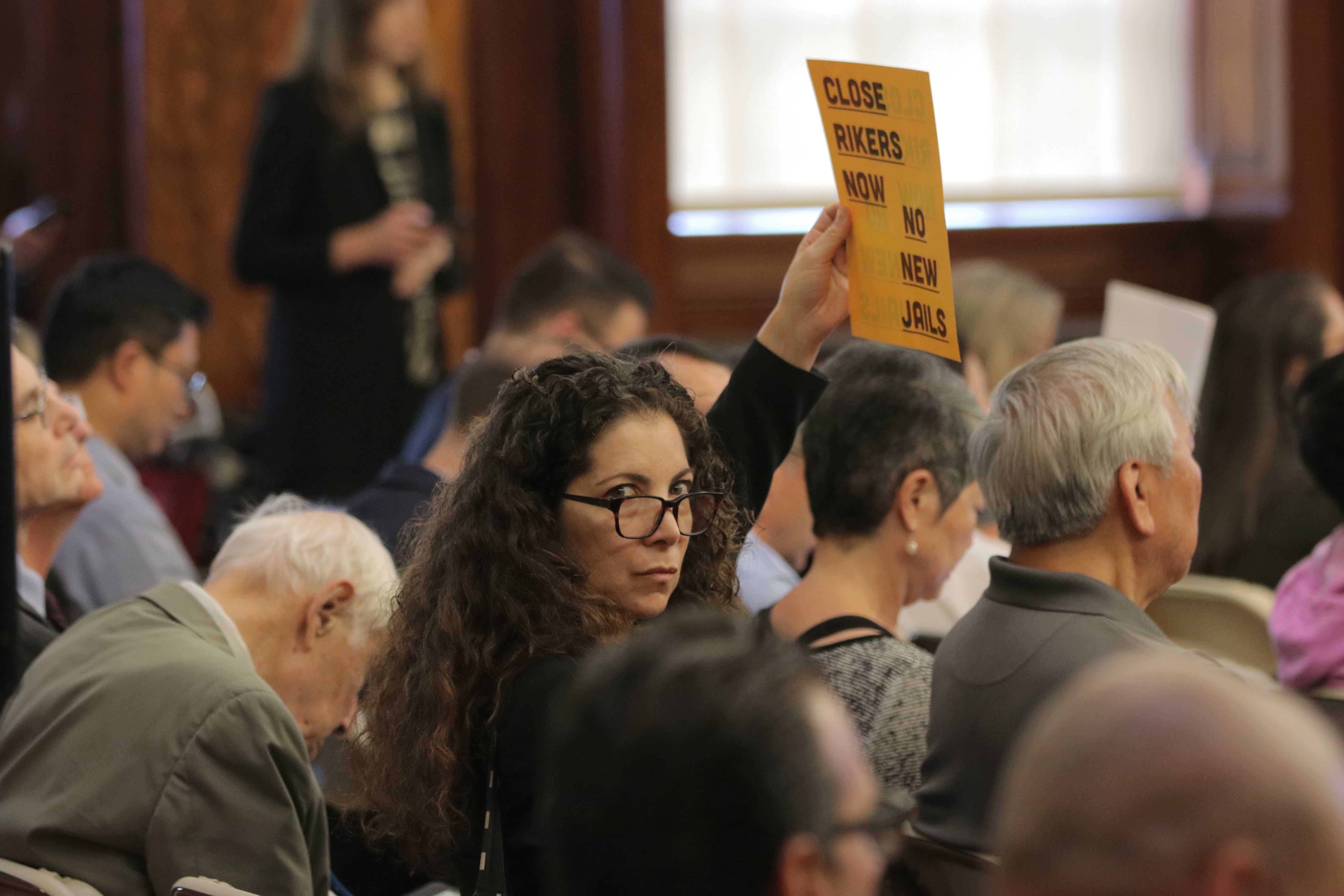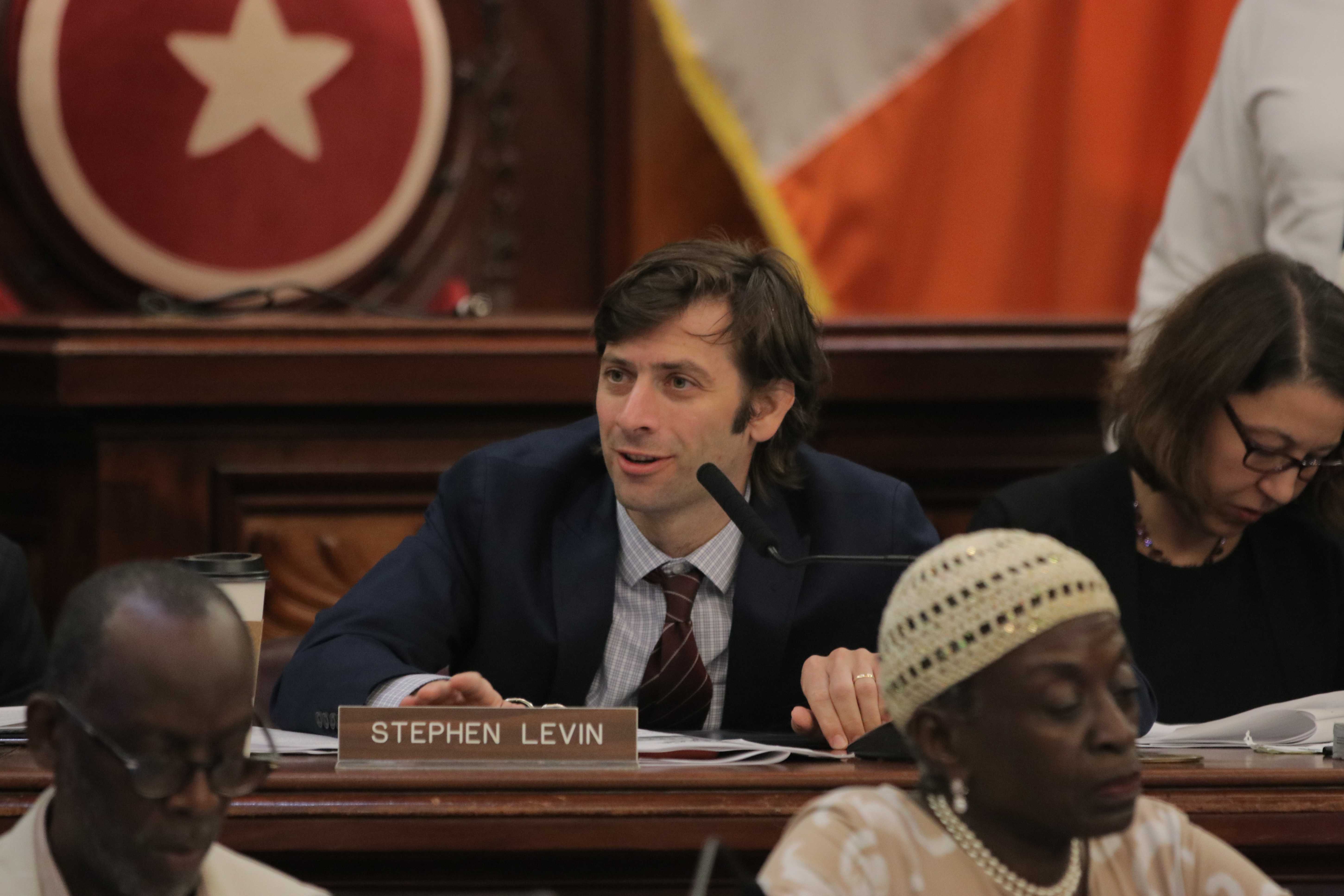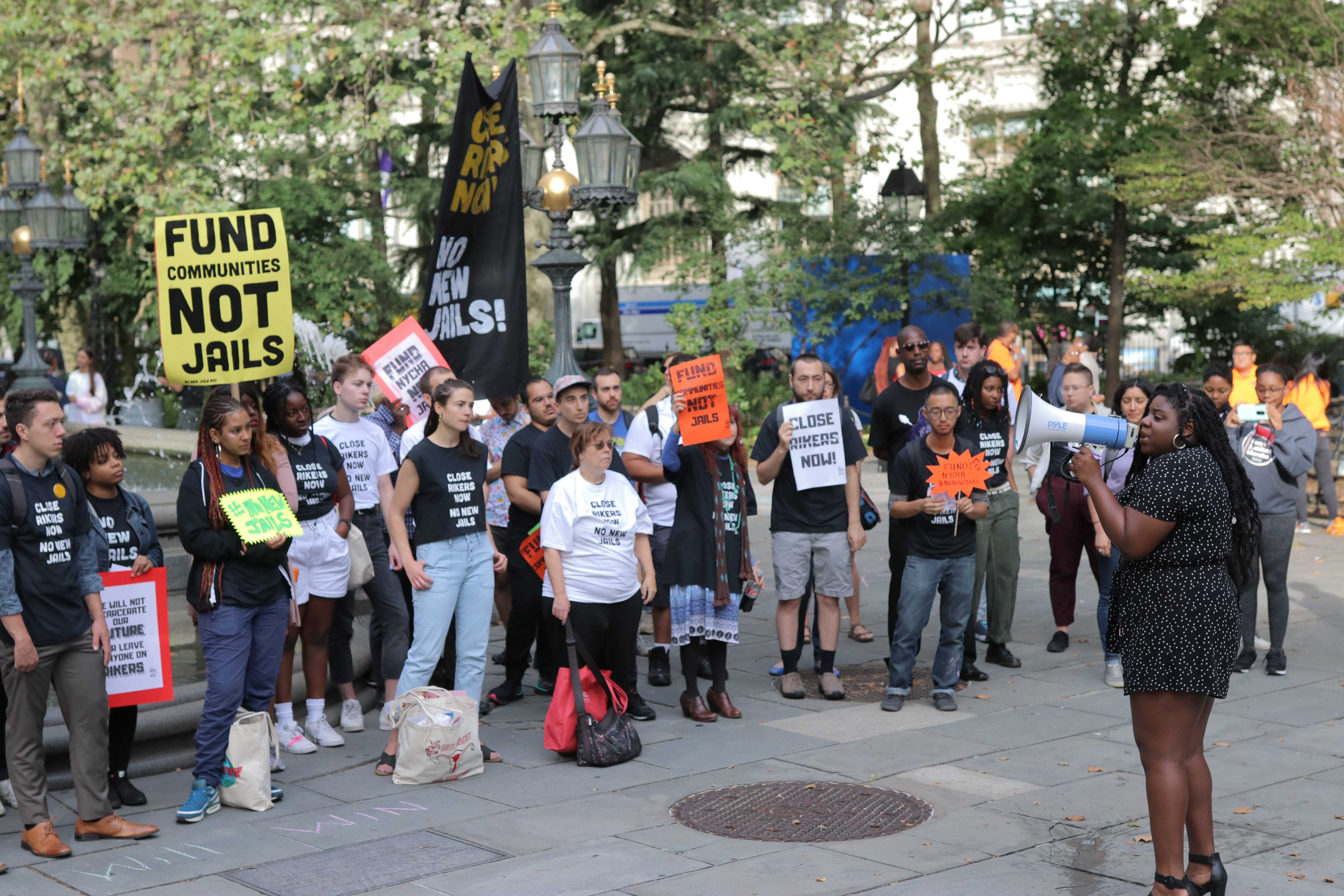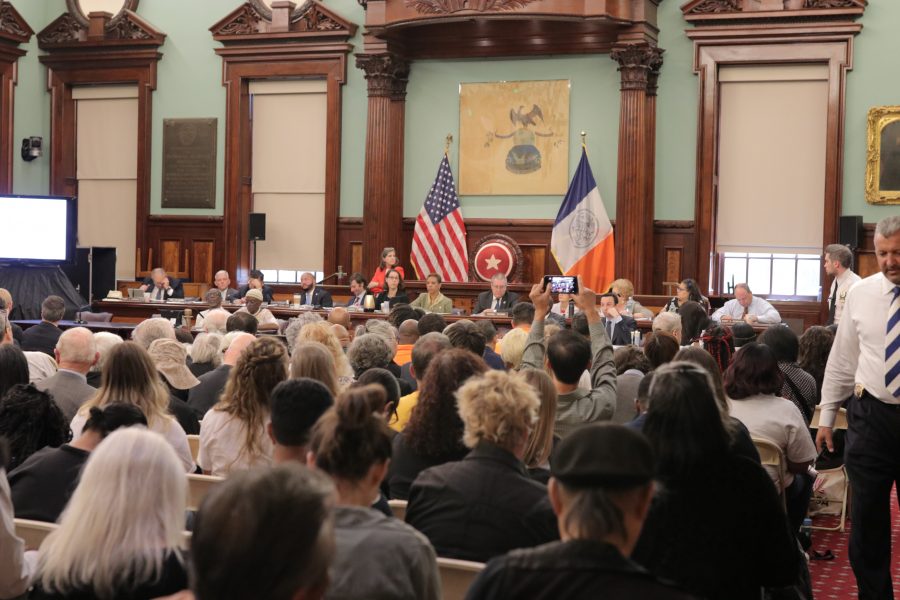In its only hearing on the multi-billion dollar, 10-year plan to close Rikers Island, New York’s City Council discussed the merits of the four jails planned to be built in every borough except Staten Island to replace it.
At a packed meeting in City Hall on Thursday, South Bronx Councilmember Rafael Salamanca — who also chairs the Council’s Land Use Committee — explained the city’s reason for wanting to close Rikers.
“There are no shortage of horror stories about the conditions on Rikers Island, heart-wrenching accounts from individuals who have experienced life on the island have led us to this moment in our city’s history,” Salamanca said. “If we are ever going to have a fair jail system in New York City, it starts with closing Rikers.”

Mayor Bill de Blasio, who was previously opposed to the idea of closing Rikers, unfolded a 10-year, $8.7 billion plan to do so in 2017. This is only possible, however, by building new jails in Brooklyn, Queens, Manhattan and the Bronx. The mayor decided to have all four sites undergo the Uniform Land Use Review Procedure, which allows for community input prior to beginning construction, together rather than separately. Previously, multiple sites have never shared a ULURP process.
All community boards in the affected areas have voted against the plans, either because of ideological opposition — as is the case with advocates from No New Jails — or due to more specific complaints.
For example, not far from NYU’s Lafayette Street Residence Hall, Chinatown community members have expressed opposition to the jail to be built in Manhattan partially because the site shares a wall with a senior center. Residents have expressed concerns about seniors in the center — called Chung Pak — after a study by NYU’s Center for the Study of Asian American Health found that construction could increase seniors’ risk of serious long-term illnesses and even death.

“One of the things we do have to look at is community impact,” City Councilmember representing Chinatown Margaret Chin said at the hearing. “One of the biggest concerns that I have is how do you protect the seniors and their caregivers during demolition and construction for [the] years that it’s going to happen?”
Members of the Department of City Planning present at the hearing responded by noting that contractors are required to follow federal, state and city legislation related to noise control. They also said the city will go “above and beyond” in regard to noise, traffic and air quality control. Contractors will use monitors that stop work if noise goes above a certain level, according to the DCP members.
At 45-50 stories, the jail at 125 White St. would be the tallest building in Chinatown. Chin expressed concern about this as well as the impact of construction on businesses in the area.

“Small businesses are impacted,” Chin said. “They’re going to have to relocate or go out of business.”
The DCP responded by saying there will be full-time, 24/7 community liaisons for each of the four sites to deal with issues as they come along.
The City Council is expected to vote on the plan in mid-October.
A version of this article appeared in the Monday, September 9, 2019 print edition. Email Yasmarie Diaz at [email protected].
























































































































































